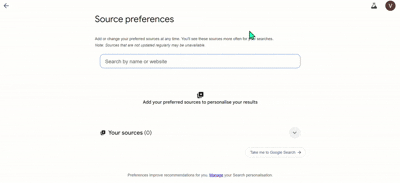
Hi friends! Ever wondered where the ultra-wealthy park their money to legally minimize taxes? Today we’re cracking open the ultimate showdown: Singapore versus Switzerland for offshore account tax implications 2026. Whether you’re an entrepreneur, investor, or globe-trotting expat, this isn’t just about stashing cash—it’s about smart wealth preservation. We’ll compare banking secrecy, tax structures, compliance hurdles, and real savings so you can decide which financial fortress deserves your millions. Ready to uncover which jurisdiction leaves more money in YOUR pocket? Let’s dive in!
Why Tax Havens? Understanding Tax Havens 2026 Dynamics
You know what? The term “tax haven” gets thrown around like confetti, but offshore account tax implications 2026 are radically different from even five years ago. Global tax enforcement has intensified with the full implementation of the OECD’s Global Minimum Tax (Pillar Two), forcing traditional secrecy jurisdictions to adapt. Modern tax havens now compete on stability and legal frameworks rather than opacity. Singapore and Switzerland lead because they offer sophisticated financial infrastructure alongside legitimate tax-efficient jurisdictions. Honestly, it’s not about hiding money—it’s about strategic allocation where tax treaties and business-friendly policies converge.
Tax havens 2026 serve three core purposes: asset protection against litigation or instability, confidentiality within legal bounds, and optimized tax liabilities. Singapore’s absence of capital gains tax or Switzerland’s negotiated lump-sum taxation for foreigners exemplify this. But here’s the kicker: both jurisdictions fully participate in the Common Reporting Standard (CRS), automatically sharing financial data with 100+ countries. The old-school “secret numbered account” is virtually extinct—today’s value lies in specialized structures like Singaporean Variable Capital Companies (VCC) or Swiss Foundations that comply while minimizing burdens.
Common myths? Many assume offshore banking is exclusively for billionaires or criminals. Reality check: middle-class expats and SME owners use these services daily for legitimate expat tax savings. Another misconception: “offshore” equals zero taxes. Nope! Singapore taxes resident-sourced income at 0-24% (effective from YA 2024), while Switzerland imposes wealth and income taxes—but at rates far below Western Europe. The magic happens through smart structuring, not evasion.
Singapore and Switzerland dominate 2026 rankings because they balance regulatory compliance with competitive advantages. Singapore boasts AAA credit ratings and pro-business reforms, while Switzerland offers political neutrality and centuries of banking expertise. As the U.S. Treasury and EU tighten screws on Caribbean islands, these two giants provide safety through transparency—making them the last standing “respectable havens.”
Singapore Offshore Banking: The Asian Tiger’s Roar
Let’s unpack why Singapore offshore banking attracts over 40% of Asia’s private wealth. First, the tax perks: individuals pay ZERO capital gains or dividend taxes. Corporate taxes cap at 17%, but new startups typically enjoy significant exemptions on their first $100k profits. Unlike Switzerland, Singapore has no wealth taxes—critical for preserving generational assets. The real gem? Non-residents only pay tax on Singapore-sourced income. Park foreign earnings in a Singapore account? Tax-free if remitted properly. That’s why hedge fund managers and crypto entrepreneurs flock here.
Banking secrecy still exists but with caveats. Singapore strictly enforces CRS but limits data sharing to reciprocal jurisdictions. While your home tax authority might get reports, prying neighbors or hackers won’t. Minimum deposits start surprisingly low—$5,000 for basic accounts at DBS or UOB versus Switzerland’s typical $500,000 private banking thresholds. For high-net-worth individuals, premium options like multi-currency accounts and family offices offer tailored wealth management strategies.

Consider Rajiv, a 42-year-old Indian SaaS founder. By relocating his holding company to Singapore, he leveraged the Double Taxation Avoidance Agreement (DTAA) effectively. His dividend income? Untaxed when received personally via a Singaporean account. Banking infrastructure shines too—digital onboarding takes 48 hours versus Switzerland’s weeks. But pitfalls exist: Singapore cracks down hard on money laundering. You’ll need certified proof of funds and detailed business plans.
The Monetary Authority of Singapore (MAS) mandates rigorous compliance but rewards it with unparalleled stability. Interest rates on SGD deposits are competitive in 2026, often outperforming the lower yields found in some European jurisdictions. For entrepreneurs eyeing Asian markets, Singapore’s double-tax treaties with 85+ countries make it a springboard. Just remember: residential property purchases face hefty Additional Buyer’s Stamp Duty (ABSD) of 60% for foreigners—keep real estate investments elsewhere.
Switzerland Tax Benefits: Beyond Chocolate and Privacy
Ah, Switzerland—where banking is an art form perfected over centuries. The Switzerland tax benefits in 2026 revolve around its unique “territorial plus” system. Residents pay tax only on Swiss-sourced income plus worldwide income brought into the country. Non-residents? Their offshore accounts remain untaxed if funds stay abroad. But here’s the golden ticket: negotiated lump-sum taxation (Forfait fiscal). Wealthy expats can pay annual taxes based on lifestyle expenses rather than actual income. Canton Zug continues to offer highly competitive rates for corporations and individuals.
Banking secrecy isn’t dead, just reborn. While CRS automated sharing exists, Swiss banks still prohibit staff from disclosing account details externally to unauthorized parties. Privacy laws impose criminal penalties for leaks—a stark contrast to Singapore’s more pragmatic approach. For expat tax savings, Switzerland’s pension system (Pillar 3a) allows significant tax deductions, and inheritance taxes vanish in many cantons for direct descendants. But brace for wealth taxes: cantons charge annually on global assets, which can add up for billionaires.
Private banking here is legendary. UBS (now incorporating Credit Suisse) offers concierge services like art financing or succession planning unavailable elsewhere. Minimum deposits start at CHF 500,000 to CHF 1 million for private banking relationships. The real value is currency diversification: hold USD, EUR, GBP, or even gold-backed accounts to hedge against inflation. For Americans though, FATCA reporting makes Swiss accounts cumbersome—expect W-9 forms and IRS disclosures.
Switzerland’s stability during crises makes it a ‘panic-proof’ vault. Political neutrality ensures assets stay untouched by global conflicts. However, transparency rules require declaring beneficial owners—ending anonymous accounts. Bottom line: if you prioritize discretion with elite service and can negotiate tax deals, Switzerland still rocks.
Head-to-Head: Offshore Account Comparison 2026
Time for the main event! Our offshore account comparison pits these giants across five critical areas. First: personal taxation. Singapore wins for non-residents—0% on foreign income. Switzerland taxes worldwide income for residents but offers lump-sum deals. For corporations, Singapore’s 17% rate is standard, while Switzerland’s effective rate varies by canton but remains competitive globally. Wealth taxes? Singapore 0% vs. Switzerland’s cantonal levies—a dealbreaker for some.

Compliance complexity favors Singapore. Setting up takes a few days with proper documentation; Switzerland demands notarized documents and often in-person visits. For FATCA/CRS, both report diligently, but Swiss paperwork can feel heavier. Liquidity access? Singapore allows instant SGD transfers via PayNow; Swiss banks are efficient but legacy systems for cross-border transfers can be slower compared to Asian fintech speeds.
Interest rates and fees reveal surprises. Singapore banks pay competitive rates on SGD fixed deposits; Swiss accounts often charge custody fees. For investments, Singapore’s SGX lists booming Asian tech stocks while Switzerland excels in commodities trading. Safety? Both have deposit insurance schemes. Singapore’s is SGD 100,000 per depositor per bank (increased recently), and Switzerland’s is CHF 100,000.
Singapore triumphs for entrepreneurs and non-residents, while Switzerland shines for European residents and wealth preservationists. Americans face hurdles in both: FATCA makes Swiss privacy moot, while Singapore’s IRS treaty facilitates data sharing. For everyone else? Choose Singapore if tax simplicity and growth matter; pick Switzerland for legacy wealth and crisis protection.
Navigating Offshore Banking Regulations & Pitfalls
Ignore offshore banking regulations at your peril! Both jurisdictions enforce strict Anti-Money Laundering (AML) laws. Expect to disclose fund sources for deposits—Singapore’s threshold for scrutiny is low, and Switzerland’s FINMA is equally strict. The Automatic Exchange of Information (AEOI) now covers over 100 jurisdictions, so hiding accounts is impossible. Penalties? Singapore fines heavily for false declarations; Switzerland prosecutes tax evasion as a criminal offense.
Required documents differ starkly. For Singapore: passport, proof of address, and bank reference letters suffice. Switzerland wants apostilled documents, certified translations, and sometimes interviews. In 2026, both require Ultimate Beneficial Owner (UBO) registries—though Switzerland’s remains less publicly accessible compared to Singapore’s corporate registry transparency. The global minimum 15% corporate tax (Pillar Two) now applies to large multinational enterprises (MNEs) with €750M+ revenue, neutralizing some tax advantages for giants, but SMEs are less affected.
For Americans, foreign account reporting is brutal. FBAR filings kick in at $10k aggregate balance, while FATCA requires Form 8938 for $50k+. Failures incur massive penalties per violation. Singaporean banks readily accept Yanks but report everything; Swiss banks often reject U.S. persons due to compliance costs or require minimums of $1M+. Non-compliance risks account freezes.
The #1 pitfall? Assuming ‘offshore’ means no reporting—both jurisdictions share more data with tax authorities than domestic banks. Work ONLY with advisors versed in both local laws and your home country regulations. Pro tip: Singapore’s Inland Revenue Authority (IRAS) offers comprehensive guides—use them!
Tailored Wealth Management Strategies for Expats
Crafting winning wealth management strategies starts with your profile. U.S. citizens? Singapore often works better due to its IRS treaty and English-language compliance. EU residents? Switzerland’s proximity and tax deals win. Entrepreneurs should anchor holding companies in Singapore (corporate tax: 17%), then route investments through Switzerland for eurozone access. Retirees love Switzerland’s lump-sum taxation—pay taxes on a fraction of actual income.
Currency diversification is critical. Hold SGD for Asian market exposure and CHF for crisis hedging. Smart expats split assets: liquid funds in Singapore for growth, gold/vaulted cash in Zurich for emergencies. Real estate? Buy property in neither—both have high entry barriers or taxes for non-residents. Instead, use REIT investments: Singapore REITs are world-class, often yielding 5-6% tax-free for non-residents.
For families, Singapore’s trust laws (100-year perpetuity period) are robust, and recent updates have made them even more attractive for family offices. Switzerland also recognizes trusts now but relies heavily on foundations. Use Singaporean trusts for business continuity and Swiss foundations for art/collectibles. International tax planning must include exit strategies: both countries tax residents heavily upon departure or have exit tax implications depending on duration of stay. Solution? Establish accounts while non-resident and maintain that status.
The ultimate hack? Combine both jurisdictions. Park trading capital in Singapore for tax-free growth, then transfer gains to Swiss vaults for preservation. Just ensure your foreign account reporting is flawless—hire cross-border specialists. Remember: tax optimization is legal; evasion isn’t. With OECD’s reforms, transparency is non-negotiable.
FAQs: expat tax savings Qs
So, who wins the 2026 offshore crown? For pure tax savings and growth: Singapore. For wealth preservation amid chaos: Switzerland. But honestly? Your ideal choice depends on residency, nationality, and wealth profile. U.S. citizens find Singapore easier; EU expats prefer Switzerland. Entrepreneurs save more in Singapore; inheritors protect legacies better in Swiss vaults. Whatever you choose, start now—compliance timelines stretch for months. Consult a cross-border tax advisor (not Reddit!), document everything, and sleep well knowing your money works smarter. Got questions? Drop them below—we read every comment!
Loved this breakdown? Share it with fellow money nerds! Subscribe for our Offshore Tax Alert newsletter—next edition reveals how Dubai’s Golden Visa program rivals both. Stay wealthy, friends!











